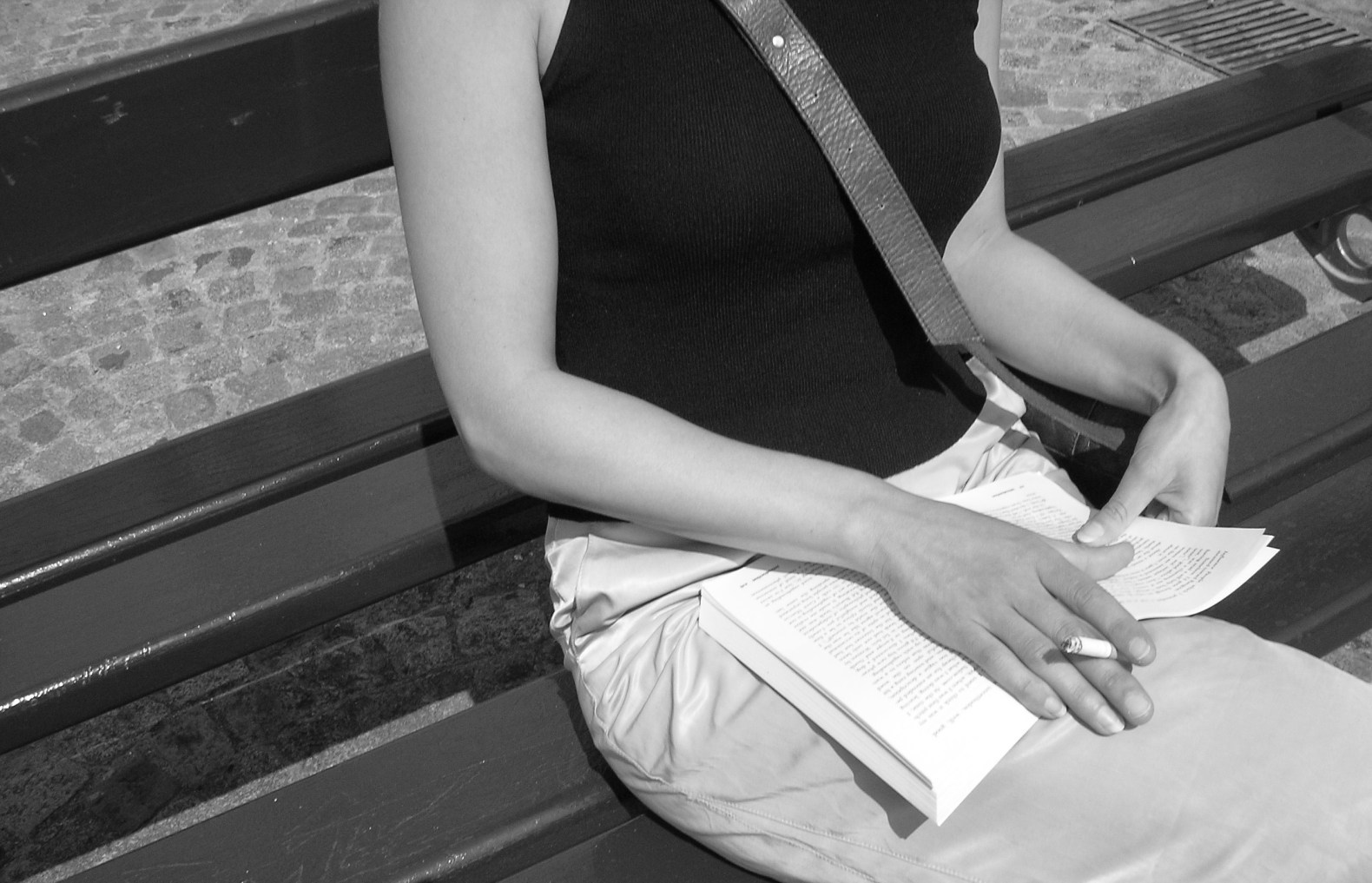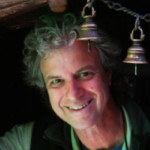From Paul Fussell’s Abroad (1980)
As I have said, it is hard to be a snob and a tourist at the same time. A way to combine both roles is to become an anti-tourist. Despite the suffering he undergoes, the anti-tourist is not to be confused with the traveler: his motive is not inquiry but self-protection and vanity. Dean MacCannell, author of the anthropological study The Tourist, remembers a resident of an island like Nantucket who remonstrated when, arriving, MacCannell offered to start the car before the ferry docked. “Only tourists to that,” he was told. Abroad, the techniques practiced by anti-tourists anxious to assert their difference from all those tourists are more shifty. All involve attempts to merge into the surroundings, like speaking the language, even badly. Some dissimulations are merely mechanical, like a man’s shifting his wedding ring from the left to the right hand. A useful trick is ostentatiously not carrying a camera. If asked about this deficiency by a camera-carrying tourist, one scores points by saying, “I never carry a camera. If I photograph things I find I don’t really see them.” Another device is staying in the most unlikely hotels, although this is risky, like the correlative technique of eschewing taxis in favor of local public transportation (the more complicated and confusing the better), which may end with the anti-tourist stranded miles out of town, cold and alone on the last tram of the night. Another risky technique is programmatically consuming the local food, no matter how nasty, and affecting to relish sheeps’ eyes, fried cicadas, and shellfish taken locally, that is, from the sewagey little lagoon. Dressing with attention to local coloration used to be harder before jeans became the international costume of the pseudo-leisured. But jeans are hard for those around sixty to get away with, and the anti-tourist must be careful to prevent betrayal by jackets, trousers, shoes, and even socks and neckties (if still worn) differing subtly from the local norms.
Sedulously avoiding the standard sights is probably the best method of disguising your touristhood. In London one avoids Westminster Abbey and heads instead for the Earl of Burlington’s eighteenth-century villa at Chiswick. In Venice one must walk by circuitous smelly back passages far out of one’s way to avoid being seen in the Piazza San Marco. In Athens, one disdains the Acropolis in favor of the eminence preferred by the locals, the Lycabettus. Each tourist center has its interdicted zone: in Rome you avoid the Spanish Steps and the Fontana di Trevi, in Paris the Deux Magots and the whole Boul’ Mich area, in Nice the Promenade des Anglais, in Egypt Giza with its excessively popular and sphinx, in Hawaii Waikiki. Avoiding Waikiki brings up the whole question of why one’s gone to Hawaii at all, but that’s exactly the problem.
Driving on the Continent, it’s essential to avoid outright giveaways like the French TT license plate. Better to drive a car registered in the country you’re touring (the more suave rental agencies know this) if you can’t find some unlikely place like Bulgaria or Syria. Plates entirely in Arabic are currently much favored by anti-tourists, and they have the additional advantage of frustrating policemen writing tickets for illegal parking.
Perhaps the most popular way for the anti-tourist to demarcate himself from the tourists, because he can have a drink while doing it, is for him to lounge — cameraless — at a cafe table and with a palpable contempt scrutinize the passing sheep through half-closed lids, making all movements very slowly. Here is the costume providing the least danger of exposure is jeans, a thick dark-colored turtleneck, and longish hair. Any conversational gambits favored by lonely tourists, “Where are you from?” can be deflected by vagueness. Instead of answering Des Moines or Queens, you say, “I spend a lot of time abroad” or “That’s really hard to say.” If hard-pressed, you simply mutter “je ne parle pas Anglais,” look at your watch, and leave.
The anti-tourist’s persuasion that he is really a traveler instead of a tourist is both a symptom and a cause of what the British journalist Alan Brien has designated tourist angst, defined as “a gnawing suspicion that after all … you are still a tourist like every other tourist.” As a uniquely modern form of self-contempt, tourist angst often issues in bizarre emotional behavior, and it is surprising that it has not yet become classic for psychiatric study. “A student of mine in Paris,” writes MacCannell, “a young man from Iran dedicated to the [student] revolution, half-stammering, half-shouting, said to me, ‘Let’s face it, we are all tourists!’ then, rising to his feet, his face contorted with … self-hatred, he concluded dramatically in a hiss: ‘Even I am a tourist.'”
Tourist angst like this is distinctly a class signal. Only the upper elements of the middle classes suffer from it, and in summer especially it is endemic in places like Florence and Mikonos and Crete. It is rare in pseudo-places like Disneyland, where people have come just because other people have come. This is to say that the working class finds nothing shameful about tourism. It is the middle class that has read and heard just enough to sense that being a tourist is somehow offensive and is scorned by an imagined upper class which it hopes to emulate and, if possible, be mistaken for. The irony is that extremes meet: the upper class, unruffled by contempt from any source, happily enrolls in Lindblad Tours or makes its way up the Nile in tight groups being lectured at by a tour guide artfully disguised as an Oxbridge archeologist. Sometimes the anti-tourist’s rage to escape the appearance of tourism propels him around in a mock-full-circle, back to a simulacrum of exploration. Hence the popularity of African safaris among the upper-middle class. One tourist agency now offers package exploristic expeditions to Everest and the Sahara, and to Sinai by camel caravan, “real expeditions for the serious traveler looking for more than an adventurous vacation.” Something of the acute discomfort of exploration and the uncertainty of real travel can be recovered by accepting an invitation to “Traverse Spain’s Sierra Nevada on horseback ($528.00).”
But the anti-tourist deludes only himself. We are all tourists now, and there is no escape. Every year there are over two hundred million of us, and when we are jetted in all directions and lodged in our pseudo-places, we constitute four times the population of France.
Read the book:






